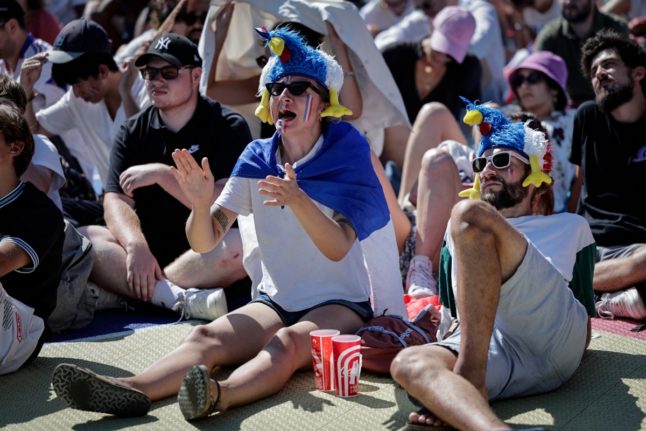Gaining French nationality brings with it many advantages from the right to vote in French elections to the right to live and work in 27 different countries (thanks to France’s membership of the EU).
It might also bring you within the scope of French judicial authorities if, say, you happen to run a global messaging service that is allegedly used by criminals and terrorists – don’t say we didn’t warn you.
But who is actually eligible for French citizenship?
Here are the different routes to nationality, and the requirements that you must fulfil – be aware that even if you fulfil all of the criteria, the process of gaining nationality is still long and requires a lot of paperwork.
Residency
The most common route to French citizenship is through residency – once you have been legally resident in France for five years you are entitled to apply to become French. This can be cut to two years if you completed higher education in France.
However, residency is only the start and there are many other requirements to fulfil, starting with speaking French to B2 level (recently raised from B1) and having the exam certificates to prove it.
You will then need to compile a bunch of documents including proof that you are financially sustainable (either through a job or other income, a pension or savings), have a clean criminal record and a ‘settled stable life’ in France – this last one is at the discretion of interviewers but applications can be refused if, for example, you have a spouse or minor children living in another country, as this indicates that you do not see France as your forever home.
If you satisfy all the requirements and provide all the requested documents, you then proceed to the interview stage where you will have to prove that you understand French culture, history, politics and values and that you agree with and intend to uphold those values.
QUIZ: Could you pass the French citizenship interview?
The residency path is the toughest route to citizenship and a significant percentage of people are turned down because they are judged to be insufficiently integrated into French society.
Find full details on how to apply HERE.
Marriage
The residency route is known as ‘par décret’ and is essentially at the discretion of French authorities. People who are applying through their family situation (eg French spouse, born in France, French parent) use the ‘par déclaration’ route.
This is typically slightly easier and if you meet the criteria you are entitled to French citizenship. But – and this is crucial – while your personal circumstances may entitle you to citizenship, it will only be awarded if you provide documents proving that you meet all the criteria.
If you are applying through marriage you must have been married to a French citizen for at least four years, although you do not need to live in France.
You will also need to speak French to B1 level (lower than for citizenship through residency) and will need to provide proof that your marriage is real, and that you live together with your spouse.
As with the residency process, you will need to attend an interview at your local préfecture (or French consulate if you live outside France) where you will need to demonstrate your knowledge of France and support for French values. You may also get a police visit at your home to check that you are indeed living together as a couple.
Full detail on the criteria and how to apply HERE.
Birth
Children born to one or more French parents get the right to citizenship through ancestry (more on that below) but children born in France to non-French parents can also become French through the droit du sol (birthplace right).
This right is, however heavily qualified.
The child must be born in France but parents cannot apply for citizenship on the child’s behalf until they reach the age of 13. At that time they must still be living in France, and must have spent a significant part of their childhood here (and must be able to prove that through documents like school certificates).
The rules are different for children born in some of France’s overseas territories.
Children can apply in their own right once they reach the age of 18, but must also fulfil the criteria for having spent a significant part of their childhood in France.
Children and parents must attend an interview at the préfecture but for this route there is no grilling on French history and politics (presumably because the kids get enough of that at school) although the child will likely have a quick chat with the official away from their parents, to confirm that they want to become French and are not being coerced.
Full details on how to apply HERE.
Ancestry
While France is relatively generous with citizenship through residency, it is less so when it comes to ancestry and only people who have a French parent qualify for this route. It is not possible to qualify through a French grandparent or other relative.
Ideally if you have a French parent they will apply for citizenship on your behalf when you are born, but if they did not do this then it’s still possible to apply as an adult.
You will need to provide the necessary documentation for your birth and your parent’s French citizenship. If your French parent lived outside France for a long time, you may need to provide some proof of their ‘ongoing connection’ to France.
You do not need to provide formal proof of your ability to speak French to gain citizenship by this route, but the entire application process will be conducted in French.
Full details HERE.
Military service
In order to serve in the French army you will usually need to be French, but there is one exception – the famous Légion étrangère or the French Foreign Legion.
As the name suggests this unit is open to foreigners and you do not need to speak French in order to join. Once you have served for five years in the Legion you are entitled to French citizenship, reduced to two years if you were wounded on active service.
A word of warning – the Legion’s training is famously brutal and their soldiers tend to be the first in and the last out of conflict zones.
Special skills/exceptional foreigner
There are two other routes to citizenship which exist but are very rare, and they both concern people who have some kind of special skills or have something exceptional to offer to the French state.
The first route is a fast-tracking of the normal application process – you need someone to nominate you to the Interior Ministry and you will need to prove a good grasp of the French language, plus “contributing through outstanding work to the influence of France and the prosperity of its international economic relations”.
The Interior Ministry suggests that this could include “a well-known personality or a company director whose work in this field is recognised” although it is commonly used for sports stars who wish to naturalise and then play for France at international level.
This route still involves the interview at the préfecture confirming that you understand French culture and values.
The much rarer ‘foreign emeritus’ procedure simply requires two conditions be met; the person is a French speaker, and they have contributed through outstanding work to the influence of France and the prosperity of its international economic relations.
You cannot apply for this, the exceptional procedure is initiated by the Ministry of Foreign Affairs. According to French regional news outlet Ouest France, only 10 to 20 such applications are processed each year.
It was through this pathway that Pavel Durov, CEO of the messaging app Telegram, became French.



 Please whitelist us to continue reading.
Please whitelist us to continue reading.
Member comments